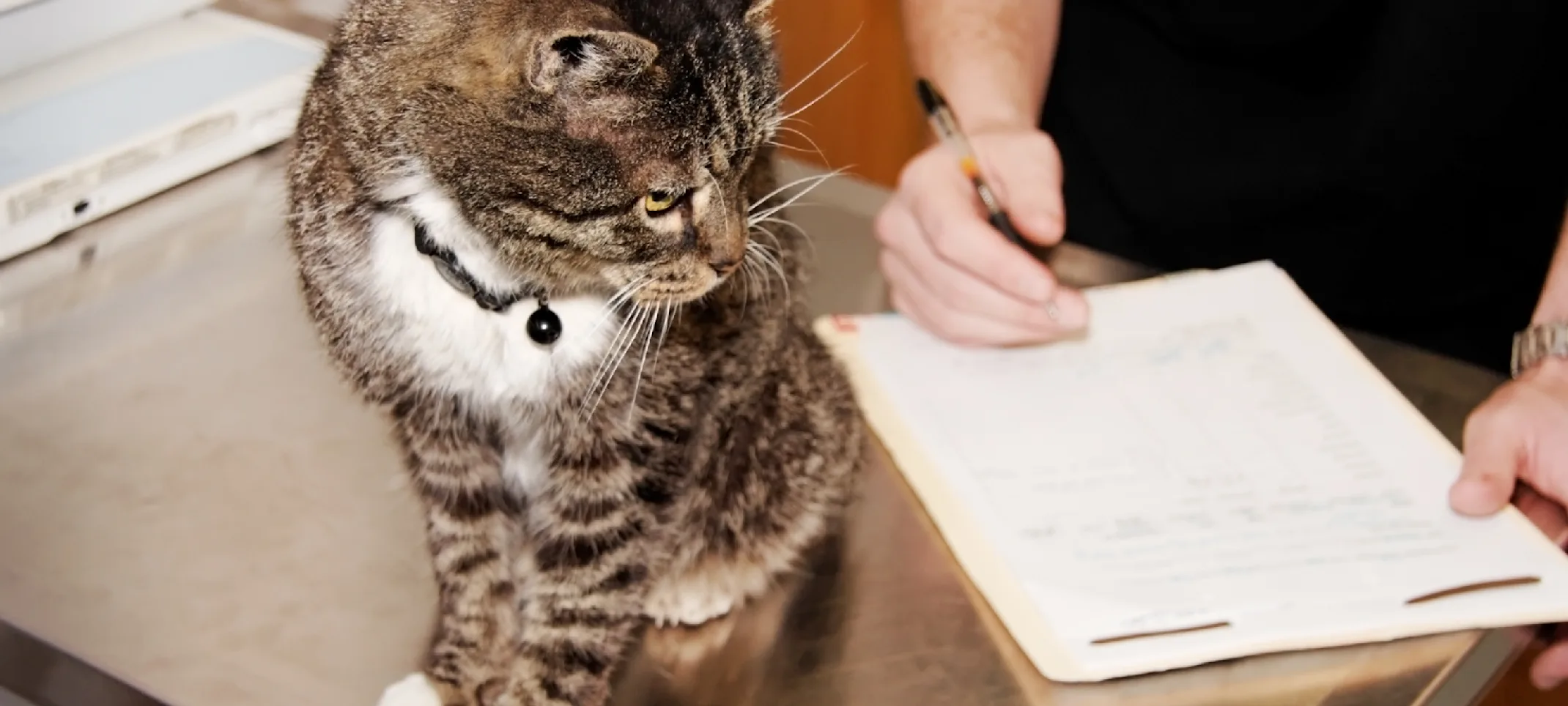Blue Ridge Veterinary Associates
Magnetic Resonance Imaging (MRI) for Pets
Magnetic resonance imaging, more commonly known as an MRI, is a highly useful tool used in veterinary medicine when more traditional diagnostic measures cannot provide an accurate diagnosis for diseases in the brain or the spinal cord.

Overview
An MRI uses magnetic fields and radio waves to create extremely high-quality, detailed images of the brain and spinal cord.
Why would my pet need an MRI?
An MRI is a highly versatile tool for diagnosing diseases in the brain or the spinal cord, also known as magnetic resonance imaging. An MRI is particularly useful for looking at soft tissue structures, and it is more detailed than getting a computed tomography (CT) scan. An MRI can detect and help your vet diagnose many problems, including tumors, inflammation, stenosis (narrowing of a part of the body), herniated discs, tracking nerve fibers, typing brain tumors without needing a biopsy, assessing tumors for malignancy, and determining what type of treatment a tumor may need (surgery or radiation therapy).
When would my pet get an MRI test?
MRIs are useful diagnostic tools and can be used to examine: bones, muscles, ligaments, tendons, the brain and nervous system, internal organs, and the spine, shoulders, or the knees of your pet. If your pet suffers from back problems, seizures, or even paralysis, then your vet may suggest an MRI to help them diagnose the problem and help alleviate the symptoms your pet is experiencing. An MRI is painless and considered to be effective and safe because they do not use any radiation. Because your pet must stay completely still during this procedure, they will receive some anesthesia before the test takes place.
How does MRI testing work?
An MRI is the most common diagnostic imaging tool used (for humans and animals) because it’s typically completely painless and it’s a safe and non-invasive procedure (complications are extremely rare occurrences). Unlike a CT scan, no radiation is used during an MRI. Instead, an MRI uses a strong magnet and radio waves to generate very high-quality images with superior resolution and detail of your pet’s internal organs and bones when compared to other imaging tools.
Because an animal cannot be asked to lie still for the duration of the procedure, your pet will need to be under anesthesia for the duration of the MRI. Prior to the veterinary MRI taking place, blood tests and X-rays are often done to make sure your pet is as safe a candidate as possible. Complications from anesthesia are very rare.
Veterinary MRIs in Purcellville
Detailed Imaging of Your Pet’s Internal Systems
When your pet is sick or injured, it’s important to quickly figure out what’s wrong. Since your pet can’t speak to tell us what’s wrong, the Purcellville veterinarians at Blue Ridge Veterinary Associates may recommend an MRI, or magnetic resonance image scan.
MRIs are powerful tools to diagnose and help pinpoint conditions that are affecting your pet. The images that MRIs produce are up to eight times more detailed than traditional x-ray images. The high degree of detail allows us to make an accurate diagnosis more quickly.
If you have questions about MRIs at Blue Ridge Veterinary Associate, call (540) 269-4656 or contact us online for more information.
Steps in an MRI
Blue Ridge Veterinary Associates wants to ensure that you and your pet are comfortable throughout the entire MRI process. If your pet needs an MRI, we’ll walk you through the entire process and answer any questions you might have about the procedure.
What to expect:
Checkup or referral – You will start with a complete checkup for your pet. Our Purcellville veterinarians will perform a regular physical exam of your pet. If you think an MRI would be helpful for your pet, let us know! We’ll discuss your options and take all aspects of your pet’s health into consideration.
Pre-admission testing and evaluation – We conduct pre-anesthetic testing prior to your pet’s MRI. Depending on your pet’s medical condition, age, and overall health, they may react differently to anesthesia, so we conduct these tests to ensure your pet’s safety.
Admission – When your pet comes in for their scheduled MRI, we ask that you arrive between 10:00 AM and 12:00 PM. We’ll let you know when you should bring your pet into our clinic. Most patients stay with us for around six hours before they’re released back to you. We’ll give you a more specific timeline when your pet is admitted.
Study and follow up – Once your pet’s scan is complete, we’ll release them back to you as soon as possible. Our veterinary team will review and interpret the findings from the MRI and ensure that a copy is given to your primary veterinarian within 48 hours of your pet’s scan.
We do our best to make the MRI scan process as easy to understand as possible. We want your experience at Blue Ridge Veterinary Associates to be comfortable and stress-free. We’re here to help!
Indications Your Pet Needs an MRI
While there are many reasons your pet might need an MRI, the Blue Ridge Veterinary Associates team will help you and your veterinarian determine when your pet needs a scan. Below, you’ll find some common indications that an MRI may be necessary.
Brain:
Congenital abnormalities
Inflammatory disease
Infarction
Primary neoplasia
Pituitary disease
Seizure trauma
Head:
Nasal disease
Ear disease
Oropharynx and nasopharynx polyps
Salivary gland masses
Mucocele/sialocele
Neoplasia
Orbits:
Retrobulbar abscess or mass
Optic neuritis
Neck:
Neck masses
Retropharyngeal masses
Thyroid masses
Spine:
Congenital abnormalities
Intervertebral disk disease
Fibrocartilagenous emboli
Spinal cord contusion
Discospondylitis
Inflammatory disease
Primary or metastatic neoplasia of the spinal cord
Paraspinal/vertebral neoplasia
Metastasis
Peripheral nerve disease
Musculoskeletal:
Achilles tendon tear
Synovial cysts
Patellar tendon tear
Osteochondrosis dissecans
Meniscal tear
Masses - metastatic lesions
Masses - soft tissue
Ligament tear
Intraarticular loose bodies
Cruciate ligament tear
Collateral ligament tear
Capsule tears
Soft tissue cysts
Avascular necrosis
Does your pet have an issue that is not listed above? Call (540) 269-4656 or contact us online for questions about conditions that may indicate the need for an MRI.
